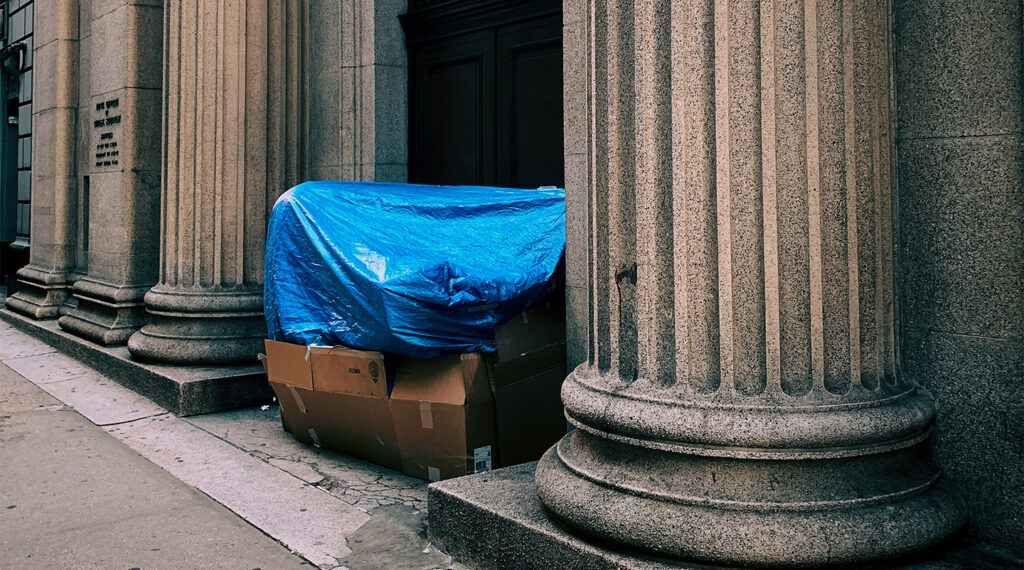Investing in economic justice

To achieve the social and ecological goals that many philanthropies are committed to, economic justice is key. Three reasons underpin the open call for applications on economic justice, which the Robert Bosch Stiftung issued at the end of 2024.
Economic injustices undermine goals pursued by philanthropies
Advancing the common good is at the heart of the work of philanthropies. For the Robert Bosch Stiftung, one quote by its founder Robert Bosch is at the core of its mission: “Be human and respect human dignity.” Many obstacles pave the way to this noble goal. Poverty wages and harmful working conditions make it hard for some workers and their families to live a dignified life. For others, it is unpaid care work, which reduces their availability for paid work and thus wages. Human dignity is also affected by CO2 emissions and its impact on disastrous weather patterns. Realising the social rights that underpin dignity, and doing so within planetary boundaries, is a question not only of the economic system, but just as definitely it is also the economic system that is needed to co-deliver these. Achieving ambitious social and ecological goals – as they are pursued by many foundations – is harder, more costly and in parts even impossible if you are not also addressing flaws in the economic system. This has recently been pointed out by Jo Swinson and Crystal Simeoni. Such thoughts also informed the design of our funding program “Building Power for Economic Justice”.
Befriending the elephant
A second thought, which has been part of the work on inequality at the Robert Bosch Stiftung since its inception in 2020, was that there are deep structural ties between the wealth of philanthropic institutions and the economic system. The origins of philanthropic fortunes lie in the economic system. It may be through an endowment built on century old profits or amassed through skyrocketing economic gains in the recent past, in the technology, luxury or other sectors. For other foundations, like the Robert Bosch Stiftung, the resources they can allocate to charitable goals are directly linked to the annual surplus of a company. Like it or not, the elephant of the relationship between philanthropy and the economy is always in the room. And economic injustices have helped grow the branch of the tree philanthropies are sitting on. Thinking about it this way may not be comfortable, but it’s not going to go away by looking the other direction. Shying away from this obvious connection creates more questions with regards to the legitimacy of philanthropic giving than searching for meaningful, power-sensitive and responsible ways for foundations to engage for justice also in the economic field.
Learning from those affected by economic injustice
Last but not least, we asked ourselves, in a field with so many inherent tensions, how can we best engage to make a difference? We are aware that engaging with economic justice can and will mean very different things for different philanthropic bodies. For the Inequality team at the Robert Bosch Stiftung, it meant looking for answers among those (most) affected by economic injustice. In the first years of funding in the area of inequality, we learned that lasting and systemic change is fought for and won by people who are pushed to the margins of society and the economy. We are convinced that sustainable solutions to the inequality crisis must include people that have experienced inequalities. Their specific knowledge helps develop and shape adequate practices and policies and therefore supporting self-organising and self-representation is key.
In the context of the open call, that meant two things: a) we brought in a jury of experts with expertise on economic justice and lived experience in this field. The jury supported us in shaping the criteria for selection and selected the grantees. And b) the call itself focused on the theme “Building power for economic justice” with a strong focus on lived experience and collective strategies to building power. Areas of special interest were care, technology and wealth. In addition, we included an explicit invitation to also cover disability as an intersecting inequality.
When the call closed at the end of 2024, we had received close to 1,000 applications. This shows the great need for funding in this field and the wealth of knowledge, motivation and approaches that exist. The lived realities of our applicants include discrimination on several fronts and indeed they develop strategies to tackle multiple forms of discrimination at once. The strongest applications outlined how they do this in solidarity with others experiencing discrimination, hence overcoming barriers imposed by gender, class, race or caste, to name a few.
The jury recently met and decided which eight organisations will be supported over the next few years and the cohort of the programme will be announced soon. When that small group of new partners starts to work with us, there will still be an abundance of other great applications that we could not support. They are looking for other funders that are ready to invest in economic justice. Would you be game?
Authors

